A Discussion with Katherine Higgs-Coulthard, author of Junkyard Dogs by Danielle L. DeFauw
| Danielle L. DeFauw, Ph.D., is a professor of reading and language arts in the Department of Education, Health, and Human Services at the University of Michigan – Dearborn. Her book, Engaging Teachers, Students, and Families in K–6 Writing Instruction: Developing Effective Flipped Writing Pedagogies, published by Routledge in 2020, details her K–6 writing methods course designed to support preservice teachers’ development of their teacher-writer voices and use of authentic writing instruction to support students’ writing development. She aims to begin her career as a children’s book author to write books filled with hope about tough topics for middle grade and young adult readers. She is actively seeking a literary agent for three completed manuscripts, especially Victory Stumbles and Scrap Wishes. |
| Katherine Higgs-Coulthard is the author of Junkyard Dogs. Throughout the pages of this YA novel, readers follow seventeen-year-old Josh Roberts as he faces homelessness and family secrets. To keep Gran from calling social services and putting Josh and his little brother, Twig, into child protective services, Josh aims to find his dad, no matter where the streets take him. But as he works with his dad’s friends, he learns too quickly the trouble unquestioning trust creates. Too deep into the family secrets, Josh finds himself amid dead bodies that hold a mystery he must unravel if there’s any hope of saving what’s left of his family. |
The Discussion
The role of YA Lit in Kat's life
and after the publication of Junkyard Dogs.
Kat: I like that you use plural for roles because there are multiple roles. First and foremost, I write YA literature. Every day, I'm trying to keep my hand in my novel. I also read a lot of YA, both for work and my own enjoyment. I teach a children's lit class at Saint Mary's College where we incorporate literature for birth to adult. Because I tend to read in the genre I'm writing, when I was working on Junkyard Dogs, I was reading a lot of books with characters that were struggling with financial situations or the threat of being unhoused. Now I'm writing a scary ghost story, so I'm reading that YA genre.
Danielle: How did the idea of Junkyard Dogs enter your writer’s heart?
Kat recollected Stephen King’s process described in his book titled The Bazaar of Bad Dreams. King said his stories come to him first as a cup, holding an idea, until he finds the handle for that cup and begins writing the idea.
Two months after that, I was at the mall food court with my children, and I happened to notice that man. He was doing the hand rolling and some rocking back and forth. He was going table to table and there was a lunch-size brown paper bag at one of the tables. He opened it to look inside, rolled it back up, and left it. That paper bag was so intriguing to me. What was in it? Why did he roll it back? It was just these story questions that started to form and so then I came up with a name: Dan Dan, the trashcan man. He was going to be ridiculed for going through the trash, and my main character was going to either defend him or react to it in some way. I knew that he was going to be a pivotal character.
The handle for the story came when I was researching a horrific event that made national news in 2006: South Bend’s Man-Hole Murders. Four men were found murdered in the manholes along the railroad tracks downtown. It wound up being a dispute between the men, who were living in an abandoned warehouse, over scrapping metal and getting money from copper out of those holes.
Danielle: Tell me about your journey to and through publication for Junkyard Dogs.
Get Inked Teen Writing
Before Junkyard Dogs, I had Hanging with My Peeps published through a small press. They did a lovely job, but I didn't get the editorial feedback that would have pushed me to go deeper with the story. Because of that experience, I knew I wanted to go with a mainstream publisher for Junkyard Dogs.
Junkyard Dogs took several years to write. From the story seed idea to a first draft was probably four years. I shared it with my trusted readers. I did several complete revisions. I sent it to 15 different agents through various conferences, and I was always getting really positive feedback, but it was still a no. It was discouraging, but it was a level up from the previous rejections I'd gotten so I felt like, these aren't rejections. These are encouragements. So I kept revising and submitting.
It happened that Jonah Heller, editor at Peachtree Teen, was presenting at the SCBWI Michigan Conference. He was open to submissions. I wondered: Do I dare submit to an editor when I don't even have an agent? After the conference, we were given the option to submit to him. At the time, his submission process was snail mail; I sent him my query letter, printed out the first 3 chapters, and physically mailed them.
Submission and Acceptance
Danielle: I love it when novels surprise me like Junkyard Dogs did. I won't give anything away, as I certainly want readers to enjoy the thrill of surprise after surprise. But I am wondering if there's anything in the book that surprised you.
Kat: Drafting Gran was a surprise for me. I was not intending to write that character. When I was trying to think about who Josh would have in his life, initially it was just him, his dad, and Stan (who was Dan originally in the first draft). But then, when the little brother, Twig, came in, I knew another adult was needed because Josh was at school. Who would be with this little boy? The characters surprised me, even Josh.
Josh was a lot harder on Twig than I expected him to be. He's a kind, supportive brother but there's a scene where he feels like Twig is letting himself get walked on and put down. And Josh blows up at Twig. Twig’s only 9, but Josh tells him he can't let people walk all over him because he will end up being walked over his whole life. That conversation devastated Twig. As I wrote it, I felt Twig’s angst. That was hard for me, but Josh was talking from his frame of reference.
Danielle: In the story, Gran is the complete opposite of a hoarder. Tell me a little bit about that choice of having Gran choose to live with minimal stuff.
Kat: I was trying to explore the idea of what defines a home. With Gran, I was trying to explore what it would be like for a kid whose adult caretaker does not value things. In Gran's trailer, she doesn't have pictures on the refrigerator. She doesn't have family photos around because she has a backstory of her own trauma where she doesn't want to get attached to anything. After all, it's not going to stay. Danielle: As you know, poverty and homelessness are thematic threads in Junkyard Dogs. Why did you choose to write about teenage poverty and homelessness?
Kat: I grew up in a low-income home. My dad would take us shopping at the junkyard. It was fun! We’d explore and find all these treasures, especially unbroken teacups for my mom. She still has a collection of mismatched teacups. That whole idea of trash to treasure, you don’t know what's going to be beautiful for somebody. So growing up in that situation, I wanted to reflect the beauty that you can find in things that other people discard. Part of what I was trying to show in that book relates to white poverty, per my experience. It is a reality throughout our country. And I just wanted to show a realistic representation of a family living with such challenges.
Danielle: In a previous post you provided for YA Wednesday, titled Facing Difficult Family Situations in YA Literature, you highlighted many important novels. What do you think the role is of YA literature in the lives of young people?
Kat: I think that honesty is pivotal in a YA book, so that readers can see the world as it is and how it should be. In YA literature, we walk that line. We represent the difficult situations in the world, and then we show a path through them. I wanted readers to see that bad things happen to Josh. He’s responsible for what he can be responsible for. By the end of the story, Josh is okay because there are people around who will help. They might not be the people that he was born to. It might not be the people put directly in his life, but they're there. I want readers to know to look for the helpers in their own lives.
The Role of Hope
Kat: I think it's important that they see somebody struggling. Josh struggles. Twig struggles. Everyone in the story is struggling, even Gran. You don't have to struggle alone. There are people around who can be your found family. Those people exist. You need to find them, and you have to put forth effort to find them. You must reach out. Your life can get progressively better.
Danielle: Tell me about your current work in progress.
Kat: The premise is two ghosts are caught in a perpetual game of hide-and-go-seek. They can't find one another. A family moves in, and finds themselves caught in the middle of these two ghosts.
The ghost story is inspired by this really weird tree near where I live. It's going to be the final image of my book, currently titled Twisted Roots. Just seeing this tree was the handle for the cup holding my idea, like Stephen King mentions. Seeing this tree helped me pick up the story about these ghosts.
In closing, Kat shared that overall, as a writer, she is trying to define the world for herself. With emotion in her voice, she questioned, “I'm trying to figure out why does stuff like this happen. Why can't your family be there for you? Why do we have to struggle? How do we get through that? How do we figure out who our helpers are? How do we figure out who we're supposed to be in this world?” She believes that “the strongest writing is when you write to discover what you know and don’t know in your heart.” As a writer, she aims to be the “the writer that kids can go to on the page and trust that they're going to get reality. And they're going to get hope. And they're going to see a path to get through it all."

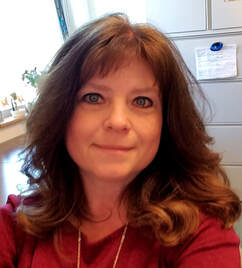
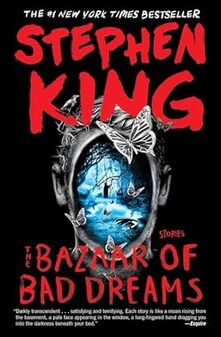
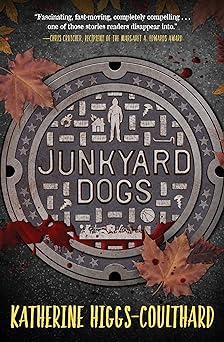

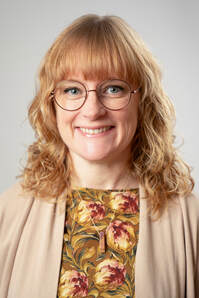
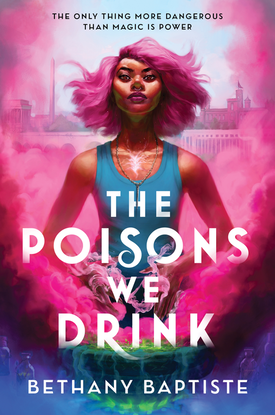

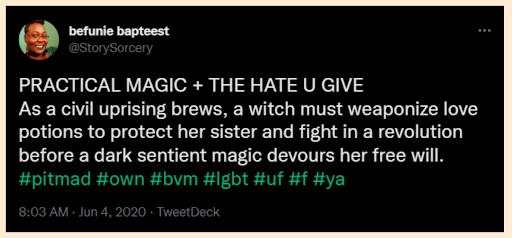
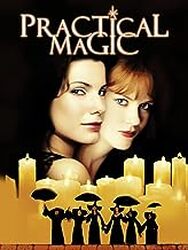
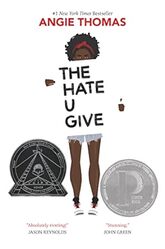
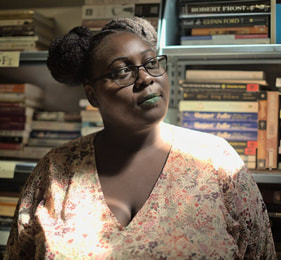
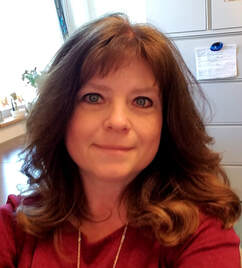
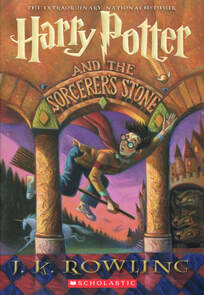
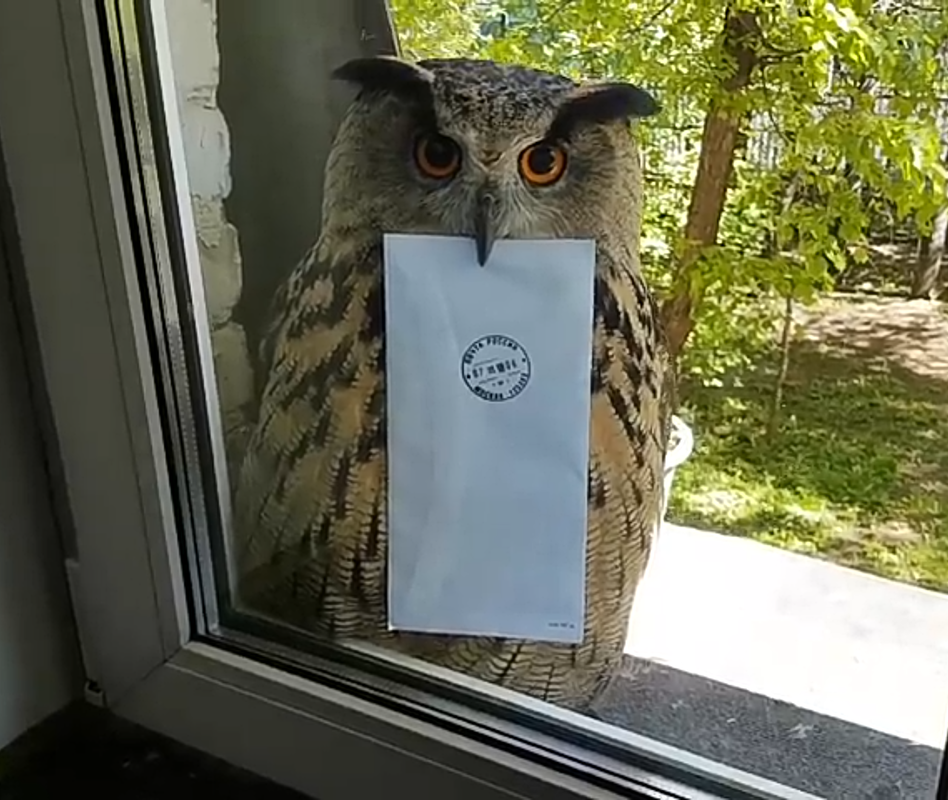
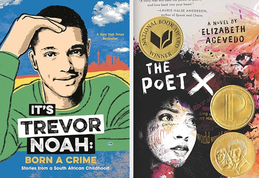
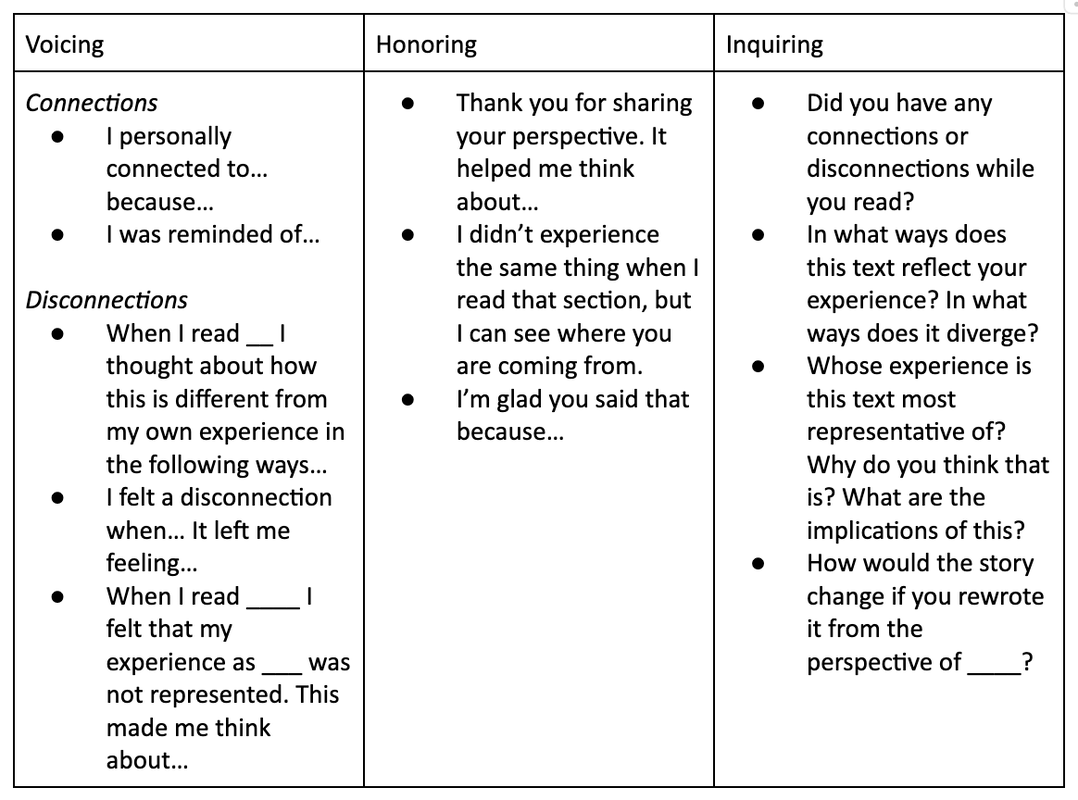

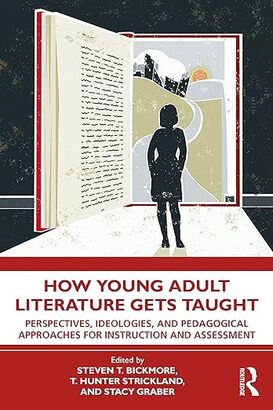

 RSS Feed
RSS Feed